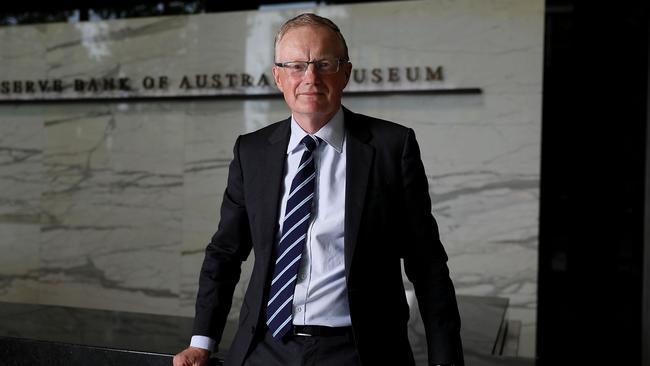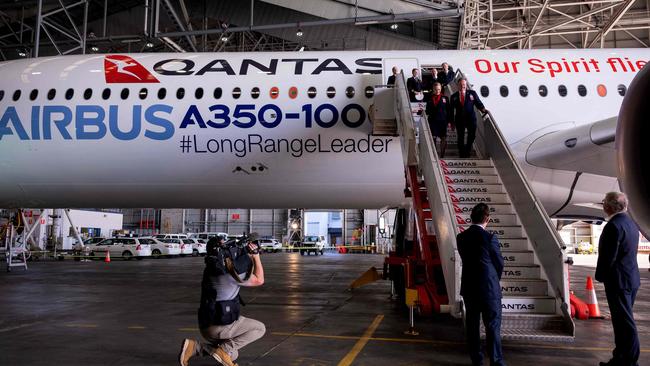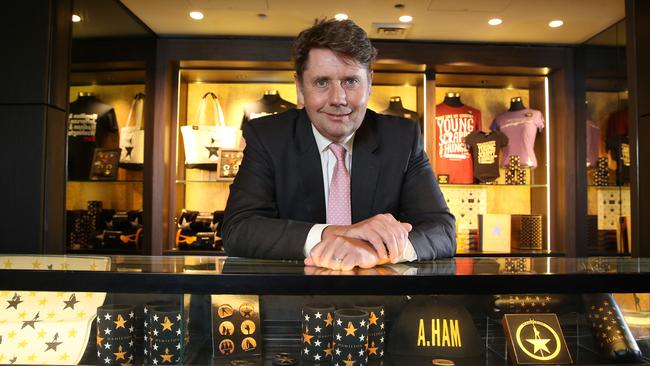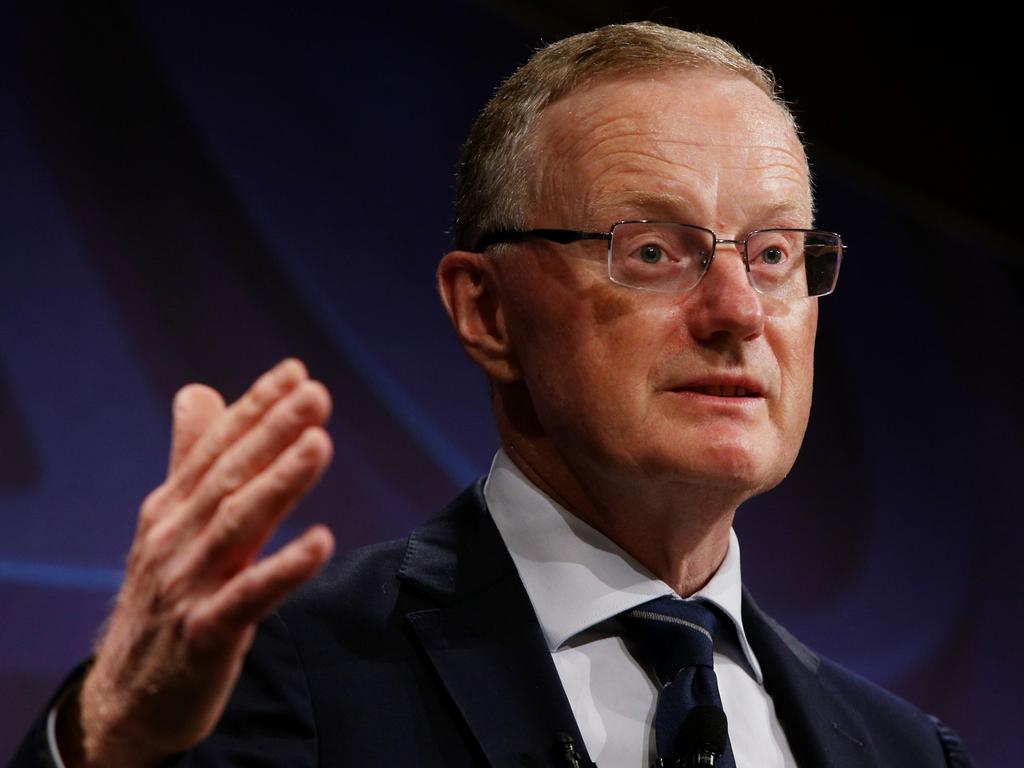Macquarie conference offers RBA an inflation insight; Qantas order a message of confidence
Philip Lowe could get some last-minute insight into the severity of inflation washing through the economy.

Reserve Bank governor Philip Lowe doesn’t have the luxury of time, but it will be worth having someone at the central bank keep an ear on the Macquarie Australia conference being held a few blocks away in Sydney this week.
Going into the RBA’s monthly board meeting, most economists – including those from ANZ, National Australia Bank and Westpac – are pencilling in a 25 basis point cash rate rise. There are one or two economists tipping a post-election start for Australia’s aggressive rate hike cycle, but for Lowe there is still a chance to get a last minute insight into the severity of inflation washing through the economy.
Even before Tuesday’s 2.30pm rates decision, executives from a cross-section of top ASX names including Mirvac, Transurban, Goodman Group, CSL, Dexus, Charter Hall and Wesfarmers will present at the Macquarie conference. And each executive is set to give some insight into the pace of price growth and importantly whether it is temporary or more entrenched. There’s little the RBA can do about imported inflation, such as oil prices – but booming domestic demand falls squarely in its remit.
Macquarie boss Shemara Wikramanayake acknowledged the pressures rising in the economy when she opened the conference early on Tuesday, saying inflation was becoming “broad based”.
Despite the difficulties of the past few years she says the Australian economy has proven particularly resilient with strong growth but it is not immune from the global pressures.
“So while inflation has been slower to take off here in Australia than some regions, it’s become more broad based and more deep seated in the recent period, which is leading to a likely shift as we all know here in monetary policy in the weeks ahead,” she said..
An even better picture will emerge in the coming days, with a busy line-up of executives from more than 100 companies operating across every part of the economy to present at the conference. Investors will also need to brace themselves.
The Macquarie conference, held annually at the start of May, has emerged as the traditional forum for “corporate confessions” – that is where full-year earnings updates are issued outside of profit reporting season.
It’s all about timing, with companies having just signed off on their third-quarter figures and having a solid read on how they are tracking through their April figures. This gives a better picture for their June half or full-year results. Most ASX companies are seeing stronger-than-expected underlying demand as the economy rapidly rebounds, but this is no time for investors to let their guard down.
In a stockmarket still trading on stretched earnings multiples, disappointments will be punished. High-flyer Aussie Broadband felt this on Monday when it shaved the upper end of its earnings guidance after being hit with higher-than-expected NBN usage charges. Aussie Broadband saw its shares sold off to be more than 32 per cent lower. The trimming of $2m from its full-year profit outlook translated to a $180m hit to Aussie Broadband’s market capitalisation. Brutal.
Qantas Confidence
While it will be little comfort for the passengers stuck in Easter airport queues, Alan Joyce’s Qantas is well into recovery mode.
With a firm order for nearly $7bn worth of new domestic and international aircraft to renew the fleet from 2025 and an option to buy tens of billions of dollars more is a message of confidence.
A massive aircraft order, including the next generation ultra-long haul A350, sends a signal the airline is no longer in a fight for its own survival.
Qantas board and management are putting behind billions in losses and are able to resume their longer-term planning cycle, s and crucially have an expectation the airline will have the funds to pay for dividends as well as new aircraft as they roll off the production line.
The foundations of this confidence can be found in the Qantas’ third-quarter earnings update on Monday — largely overshadowed by details of the aircraft order and flight arrangements for Project Sunrise that will see non-stop flights between Australia and London or New York, something that has been nearly four years in the making.
Buoyed by surging domestic travel and a recovery in international flights, Qantas is now generating cash again. Deep cost cuts through the Covid-19 lockdowns are helping the recovery with Qantas rapidly paying down its dangerously high debt levels. This means the airline is rebuilding its balance sheet which sat at a wafer thin net equity position of just $15m at the end of December.
Net debt (which includes cash on hand) is now down from a peak of $6.4bn during the Covid border closures to sit at a more digestible $4.5bn at the end of April. Net debt is projected to hit the bottom of Qantas’ target range by the end of June, which means just as interest rates rise around the world borrowings will sit below pre-Covid levels.

Backed by a surge in Easter bookings, Qantas domestic is expected to be earnings positive during the June quarter with capacity running above pre-Covid levels.
The sting for passengers which investors like, is the explicit warning that ticket price rises are coming to offset surge in fuel prices. Qantas’ much relied on fuel hedging program rolls off at the end of June, with higher prices to be passed on to consumers during July and August. The key for Qantas is whether the higher international and domestic prices will slow the expected recovery path.
Joyce points out that the recovery in business traffic has been faster-than-expected and if the Reserve Bank of Australia needs any more pointers for underlying strength that small business domestic travel is running at 100 per cent of pre-Covid levels. Corporate business travel where staff are more likely to be working from home has been a bit slower running at 85 per cent of pre-Covid levels.
While details are confidential, the long haul A350-1000 contract of Project Sunrise is worth more as much as $3.5bn, while the smaller 40 domestic-focused Airbus A321 and A220 contract (Project Winton) is likely to exceed $3bn. An option for more than 90 other aircraft from Boeing says Qantas is planning around growth.
The massive order puts Qantas on the path of becoming an Airbus carrier, breaking away from when Seattle’s Boeing dominated its international fleet. Airbus is on trend among long distance carriers edging ahead of Boeing in the past two years in terms of net orders.
Supply chain issues aside, Qantas is targeting its Project Sunrise service to start by the end of calendar 2025. Remember, Qantas was rushed with demand prior to Covid for its Perth to London route. Surging oil means the 25 per cent fuel saving significantly improves the economics of the long haul route.
With Joyce now coming up to 12 years in the top job, It’s even more likely that a new CEO will be in place on the first non-stop flight.
Lessons from fallen Star
It’s rare you get a CEO forced to run through the details of their painful resignation while answering questions under oath, but the embattled and outgoing Star Entertainment boss Matt Bekier gave a familiar lesson about why companies go bad.
Bekier fell on his sword at the end of March as the Sydney-based casino he ran became embroiled in as part of the NSW review of its gaming licence. The lessons have a familiar ring for all large companies about how bad news travels through an organisation.
Bekier takes ultimate responsibility – hence his resignation – for the troubled high roller gaming program which even a deeply experienced casino executive admits he failed to “challenge” while it was operating. During the NSW gaming review evidence emerged of some executives deliberately snubbing rules which allowed millions of dollars to illegally flow through the casino.

Bekier described the VIP business that lured in whale gamblers as the “dark art” and said he was prepared to let the business run its own race given it represented 10 per cent of earnings.
Or in Bekier’s words: “We relied on people with a lot of experience to do what they do.
“ … We didn’t challenge them. I didn’t challenge them,” he told the inquiry “It's a dark art of acquiring customers to convince them to fly long range and gambling in your casinos and then finding a way to collect data and then settle and collect money. It’s very different from the rest of our business”.
He says a “subculture” emerged in the business where some staff members flouted rules that didn’t evolve as the company was changing. Had the information about losses and funds being used flowed up to him, he would have had the backing of the board to shut the business down.
As CEO Bekier says he was ultimately responsible because he “picked people and established the processes and structures and policies”.
“And while I don’t think I was personally engaged in anything. It was happening under my leadership”.
Bekier set the challenge for the Star board, saying the company needs to bring in a new CEO from the outside “with a fresh pair of eyes” and someone who is unshackled by historical traditions.








To join the conversation, please log in. Don't have an account? Register
Join the conversation, you are commenting as Logout